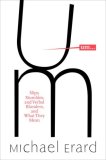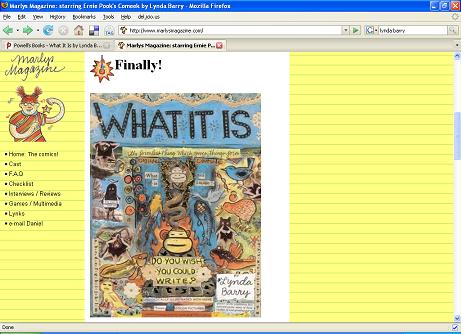May 20, 2008
Better Than Conscious?: Decision Making, the Human Mind, and Implications For Institutions (Strüngmann Forum Reports) ed. by Christoph Engel and Wolf Singer (MIT Press, 2008)

From the product description:
Conscious control enables human decision makers to override routines, to exercise willpower, to find innovative solutions, to learn by instruction, to decide collectively, and to justify their choices. These and many more advantages, however, come at a price: the ability to process information consciously is severely limited and conscious decision makers are liable to hundreds of biases. Measured against the norms of rational choice theory, conscious decision makers perform poorly. But if people forgo conscious control, in appropriate tasks, they perform surprisingly better: they handle vast amounts of information; they update prior information; they find appropriate solutions to ill-defined problems.
This inaugural Strüngmann Forum Report explores the human ability to make decisions, consciously as well as without conscious control. It explores decision-making strategies, including deliberate and intuitive; explicit and implicit; processing information serially and in parallel, with a general-purpose apparatus, or with task-specific neural subsystems. The analysis is at four levels–neural, psychological, evolutionary, and institutional–and the discussion is extended to the definition of social problems and the design of better institutional interventions. The results presented differ greatly from what could be expected under standard rational choice theory and deviate even more from the alternate behavioral view of institutions. New challenges emerge (for example, the issue of free will) and some purported social problems almost disappear if one adopts a more adequate model of human decision making.
Preprint of the Max Planck Institute for Research on Collective Goods (22 p. pdf by Engel and Singer)
Ernst Strüngmann Forum information
Comments (0)
- cognitive science,consciousness,new books
Um. . .: Slips, Stumbles, and Verbal Blunders, and What They Mean by Michael Erard (Pantheon, 2007).

This book takes a detailed look at verbal blunders of all sorts, as well as attitudes towards them and approaches to cataloging and studying them. The author finds that “…verbal blundering is integral to language, not something that intrudes upon it.” (p. 55)
Pause fillers like “uh” and “um,” restarted sentences, and repeated words are the most common speech disturbances, but they were rarely noticed or commented on until voice recording technologies put everyday speech under heightened scrutiny. Slips of the tongue are the rarest kind of error but perhaps for that reason the most noticeable.
Among the topics treated in the book are “the aesthetic of umlessness” (p. 113), Toastmasters, bloopers, and the verbal blunders of President George W. Bush.
The book includes a section of recommended reading and a “field guide” to blunder terms. The website www.umthebook.com has the full bibliography and endnotes, plus a rich array of supplementary material.
Comments (1)
- Uncategorized
May 18, 2008
This was the featured book for today at Powell’s Daily Dose (selected reader review):

from the product description:
How do objects summon memories? What do real images feel like? For decades, these types of questions have permeated the pages of Lynda Barry’s compositions, with words attracting pictures and conjuring places through a pen that first and foremost keeps on moving. What It Is demonstrates a tried-and-true creative method that is playful, powerful, and accessible to anyone with an inquisitive wish to write or to remember. Composed of completely new material, each page of Barry’s first Drawn & Quarterly book is a full-color collage that is not only a gentle guide to this process but an invigorating example of exactly what it is: “The ordinary is extraordinary.”
Marlys Magazine website also has some sample pages:

Comments (0)
- new books
May 16, 2008
I’ve noticed a number of new books coming out on the subject of memory; here’s a short list: 
The Woman Who Can’t Forget: The Extraordinary Story of Living with the Most Remarkable Memory Known to Science–A Memoir by Jill Price with Bart Davis (Free Press, 2008)
Can’t Remember What I Forgot: The Good News from the Front Lines of Memory Research by Sue Halpern (Harmony, 2008) author’s blog
Memory: From Mind to Molecules by Larry Squire and Eric Kandel (Roberts and Co, 2nd ed., coming in July 2008)
The Metaphysics of Memory (Philosophical Studies Series) by Sven Bernecker (Springer, 2008)
……………..
And this:
A bibliography and resource list on the interdisciplinary study of memory, updated in Nov. 2007, by John Sutton, Philosophy Dept., Macquarie University
Comments (0)
- mind,new books







